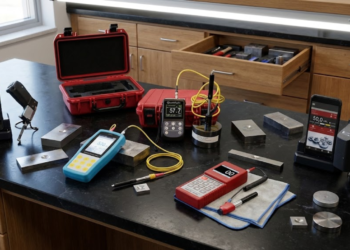In today’s fast-paced world, scientific discoveries are more than just breakthroughs in labs – they are catalysts for innovation and transformation in businesses across industries. The journey from the laboratory to the market is complex, but it is becoming increasingly vital as companies leverage cutting-edge research to enhance their products, streamline operations, and meet evolving consumer demands. This article explores how new scientific discoveries are shaping business landscapes and the crucial role of technology in facilitating this process.
The Role of Scientific Discoveries in Business Innovation
Scientific discoveries often start with a question: “What if?” Researchers, working in universities, private research institutions, or corporate labs, pursue these questions to develop new insights that challenge conventional thinking. These discoveries, whether in fields like biotechnology, materials science, or artificial intelligence, have the potential to revolutionize entire industries.
Take, for instance, the pharmaceutical industry. Recent advancements in genomics and personalized medicine are allowing companies to create drugs that are tailored to an individual’s genetic makeup. This not only promises to improve patient outcomes but also opens new revenue streams for businesses that can commercialize these innovations. Similarly, in the materials science sector, discoveries of more sustainable and efficient materials have led to the development of lighter, stronger products in industries ranging from automotive to aerospace.
Beyond product innovation, scientific research is also helping businesses become more efficient. Research in fields like data analytics and machine learning is allowing companies to optimize everything from their supply chains to customer service operations. This means that businesses can be both more competitive and more responsive to the needs of the market.
The Role of Technology in Bridging the Gap Between Lab and Market
While scientific discoveries provide the groundwork for business innovation, technology plays a pivotal role in transforming these ideas into market-ready products. Digital tools, data analysis, and software platforms are essential in helping businesses translate scientific knowledge into practical applications.
One example of this is the use of Power BI Process Mining, a tool that allows businesses to analyze and visualize processes in real-time. By leveraging such technology, companies can uncover inefficiencies in their operations, optimize workflows, and streamline the commercialization of new scientific discoveries. The integration of data analysis tools allows businesses to make informed decisions quickly, reducing time-to-market for new products and solutions. This synergy between scientific breakthroughs and advanced technology helps businesses maintain a competitive edge in rapidly evolving industries.
Additionally, 3D printing has emerged as a powerful tool in various sectors, enabling rapid prototyping and small-scale manufacturing of new products. For instance, industries like automotive and aerospace now rely on 3D printing for testing new components without the need for traditional molds, significantly speeding up the development process. The flexibility offered by 3D printing makes it easier for companies to experiment with different materials and designs, translating scientific innovations into tangible products more effectively.
Challenges in Commercializing Scientific Discoveries
Despite the enormous potential of scientific discoveries, translating them into commercially viable products is not without its challenges. One of the main obstacles is the gap between research and practical application. Often, academic research is not tailored to the specific needs of the market, and there is a disconnect between what is scientifically possible and what is economically feasible.
In conclusion, the transformation of business through scientific discoveries is an exciting and ongoing process. By embracing new technologies, optimizing processes, and collaborating across sectors, companies can unlock the full potential of scientific innovation. This not only drives economic growth but also improves the quality of life for consumers around the world.
David Prior
David Prior is the editor of Today News, responsible for the overall editorial strategy. He is an NCTJ-qualified journalist with over 20 years’ experience, and is also editor of the award-winning hyperlocal news title Altrincham Today. His LinkedIn profile is here.




![7 Best POS Software in the UK [2026 Edition]](https://todaynews.co.uk/wp-content/uploads/2026/02/7-Best-POS-Software-in-the-UK-2026-Edition-360x180.png)






































































